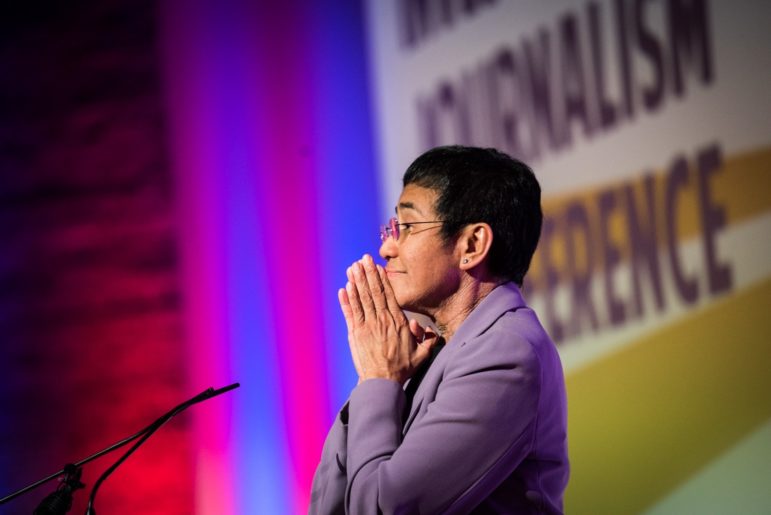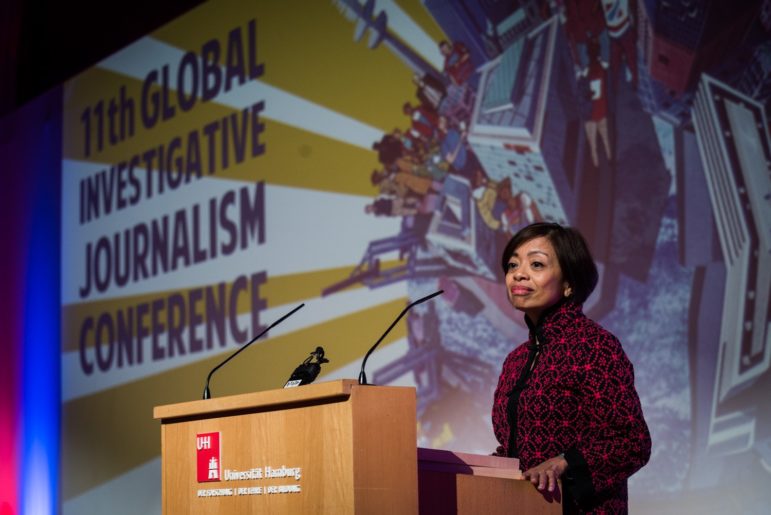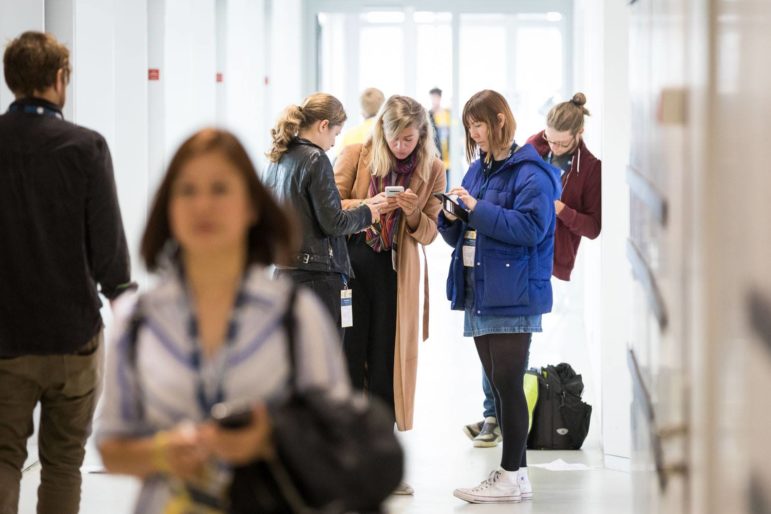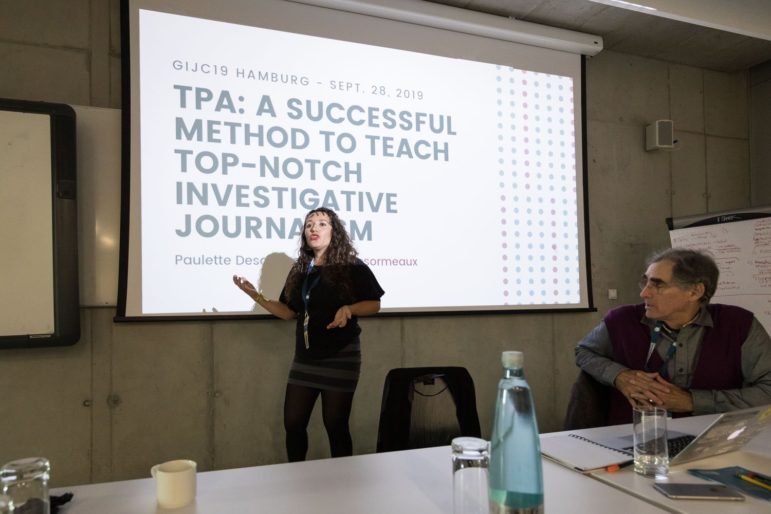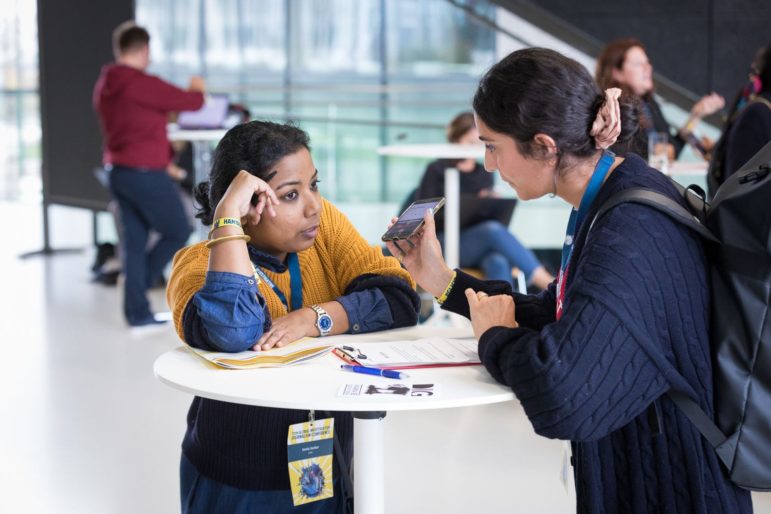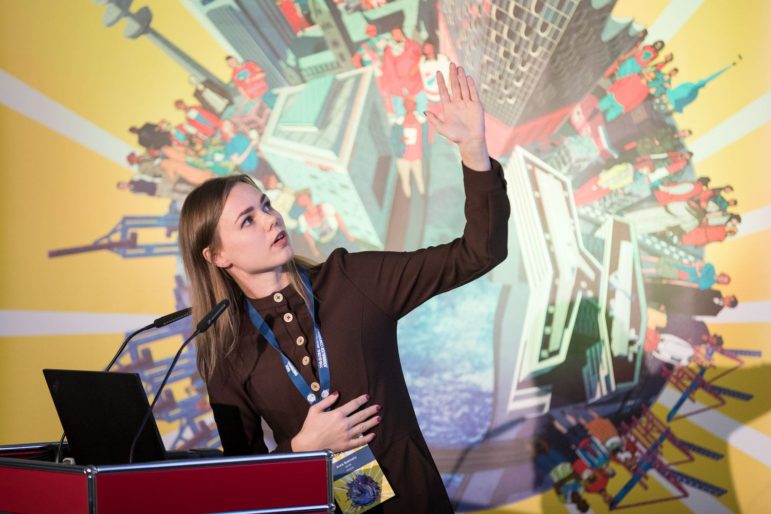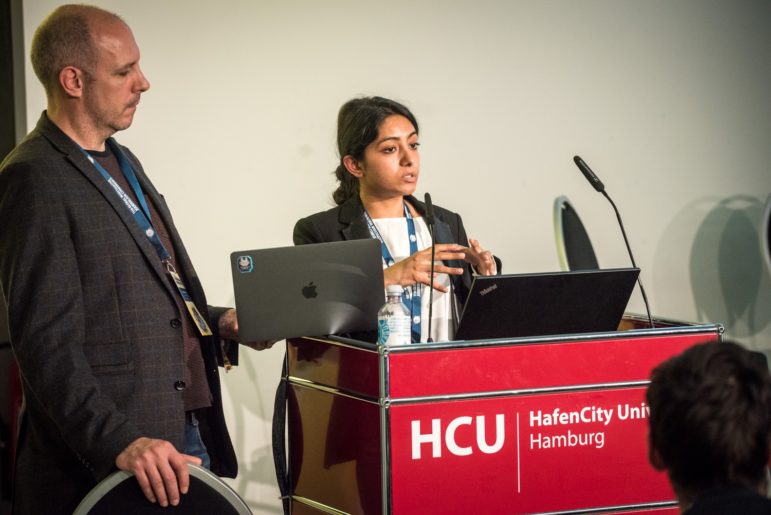

Chapter 2: Networks
Chapter 2: Networks For Women Journalists
Guide Resource
Resources for Women Journalists – A GIJN Guide
Chapter Guide Resource
Chapter 1: Women in Leadership
Chapter Guide Resource
Chapter 2: Networks For Women Journalists
Chapter Guide Resource
Chapter 3: Safety, Discrimination & Harassment
Chapter Guide Resource
Chapter 4: Grants, Fellowships, and Awards for Female Journalists
Chapter Guide Resource
Chapter 5: Finding Mentors
Chapter Guide Resource
Chapter 6: Female Experts
Chapter Guide Resource
Chapter 7: Spotlight on Women in Investigative Journalism
Chapter Guide Resource
Chapter 8: Reports on Women’s Issues
International Networks
Professional networks can be great resources for peer support, mentorship, collaboration, and contacts. In the male-dominated industry of investigative journalism, it can be helpful to reach out to other women for understanding and support. That’s why we’ve rounded up a list of regional and global networks specifically for women journalists around the world.
GIJN Women is an online group created by the Global Investigative Journalism Network (GIJN) to discuss issues related to women and nonbinary reporters in investigative journalism.
The Washington, DC-based International Women’s Media Foundation was founded in 1990 and today provides grants and training, offers several awards, and organizes reporting trips for women and nonbinary journalists from around the world, with a focus on under-reported stories. The IWMF also has an Emergency Fund and supports safety training.
The International Association of Women in Radio & Television is a global network for women working in broadcast and electronic media, with chapters in Afghanistan, Cameroon, Iraq-Kurdistan, Moldova, Norway, South Africa, Uganda, Cambodia, India, Kenya, Nepal, the Philippines, Tanzania, and the US. The IAWRT supports global projects focused on women and media, organizes conferences, and offers professional training opportunities.
Women Photograph is a nonprofit that launched in 2017 with a mission to “shift the makeup of the photojournalism community and ensure that our industry’s chief storytellers are as diverse as the communities they hope to represent.” The network runs a directory of 1,400 independent documentary photographers around the world that identify as women and nonbinary visual journalists, and campaigns for editors to include more photographs taken by women in the photos they publish. You can see the data they collect on front page bylines here.
Media Moms is a closed Facebook group with over 500 members who are “moms” working in newsrooms, in journalism education, and on the business side of media. Its mission statement: “We face unique challenges balancing deadlines and life at home. This is a supportive space to share stories, issues, solutions, and virtual hugs.”
Women in Investigative Journalism. Twitter list by GIJN’s Laura Dixon.
Women in OSINT. Twitter list by Deutsche Welle’s Julia Bayer.
Launched in 2017, the Coalition for Women in Journalism aims to foster “camaraderie between women journalists around the globe,” offering resources, events, advocacy, and mentoring from experienced journalists. The Coalition has contacts in countries across Latin America and Asia.
OpenHeroines is a “global intersectional community of women and non-binary people working in the Open+ spaces, i.e. Open Data, Open Government and Civic Tech”.
Networks in Africa
Launched in 2020 with the support of the ICFJ, the Africa Women Journalism Project is dedicated to strengthening the voices of women journalists and driving coverage of under-reported gender, health, and development issues. The AWJP offers training, fellowships, story microgrants, and mentorship as well as editorial, design, and tech support to women journalists committed to developing their careers and taking up leadership positions in their newsrooms.
Launched by Code for Africa, WanaData is a network of female African journalists, data scientists, and techies collaborating to produce data-driven stories. Find stories and conversations on Twitter using #Wanadata. Join the team or pitch a story here. Together with its partners, the network offers a digital journalism training program.
Founded in 2016, the African Women in Media (AWiM) convenes annually, runs an active Facebook group, and has a weekly newsletter focusing on professional development of African women in the industry and representation of gender issues in the media. In 2020, with Fojo Media Institute, they published a study that reveals barriers to entry for women journalists in sub-Saharan Africa. They surveyed 125 women journalists from 17 African countries.
Established in 1983, the Association of Media Women in Kenya is a nonprofit membership organization focused on equality and visibility for women in the industry and in society through the media. AMWIK publishes resources, including the Women Journalist’s Digital Security survey, and offers a scholarship fund.
The Nigeria Association of Women Journalists was established 25 years ago and aims to increase women’s access and leadership in the media. NAWOJ offers advocacy and training to women journalists in Nigeria.
Cameroon Media Women launched as a WhatsApp group and a closed Facebook page in 2018 in response to the #MeToo movement. With the #StopSexualHarassment237 hashtag, referring to Cameroon’s country code, women journalists held a Twitter discussion and shared videos discussing the issues women face in newsrooms.
The Senegal-based Inter-African Network for Women, Media, Gender Equity and Development is a media and communications organization for women founded in 2001 and operating in 22 countries in West and Central Africa. FAMEDEV is dedicated to media, gender equity, and development in Africa. It provides training to female journalists; produces resource kits for advocacy, information and training; and promotes social entrepreneurship.
Networks in Latin America
Launched in 2013, Chicas Poderosas has chapters in 13 countries in Latin America and Spain. It organizes investigative journalism workshops and hackathons; trains women in leadership, digital, and new media skills; and has facilitated mentoring and fellowships.
The Coalition for Women in Journalism aims to foster “camaraderie between women journalists around the globe,” and has a chapter in Mexico.
The WINN network mentorships provide a space of support and trust among Latin American women journalists.
Networks in the Middle East
Based in the Netherlands, the Syrian Female Journalists Network was founded in 2012 with a mission to amplify the voices of female journalists in Syria and help them get into positions of leadership. SFJN, which has both male and female members, provides training for female journalists inside Syria, as well as in Turkey, Lebanon, and Jordan, focusing on gender and feminism. The network shares resources and opportunities with its members.
The Marie Colvin Journalists’ Network is an online community of journalists whose members receive practical support and mentoring, and who share advice with others. It’s free of charge and open to Arabic-speaking female journalists who work in the Arab world.
Networks in North America
Started in 1985, the Journalism & Women Symposium aims to provide a community for women journalists in the US, with an active national listserv, regional chapters, and networking, and training events. JAWS focuses on providing “resources, support, training and information about issues that affect women” in the media. JAWS hosts an annual conference and also offers ongoing mentoring.
The Washington, DC-based International Women’s Media Foundation was founded in 1990 and today provides grants, training, and reporting trips to women and nonbinary journalists from all over the world, with a focus on under-reported stories.
Starting in 1909, the US-focused Association for Women in Communications works to elevate the role of women in communications through learning opportunities, a jobs board, and connections across a network of women leaders.
The Women in Journalism Workshop is an annual in-person workshop at the Reynolds Journalism Institute that focuses on challenges, accomplishments and issues specific to women in the journalism industry today.
Networks in Asia
The Network of Women in Media, India is an advocacy and networking organization that provides a forum for women journalists in India to “share information and resources, exchange ideas, promote media awareness and ethics, and work for gender equality and justice” within the industry and society. NWMI has 16 chapters across the country.
News for Equality coalition launched in Mongolia in November 2021, encouraging newsrooms and journalists to write about gender issues. It comprises of 500 members, including journalists, journalism trainers, students and women’s rights activists; 100 journalists are actively reporting on gender issues, while they also provide small honorariums for their members.
Working Women Journalists in Nepal is an advocacy organization that lobbies for increased access and equal opportunity for women in the media, and provides training, seminars, and workshops.
The NüVoices network supports women working on the subject of China (broadly defined), including journalists. NüVoices has a closed Facebook page, chapters in Greater China, the US, and Europe; and a directory of female experts.
The Coalition for Women in Journalism aims to foster “camaraderie between women journalists around the globe,” and has chapters in Afghanistan, Pakistan, China, and India.
Women in Media Network Japan was formed in 2018 by 86 women journalists, growing out of the #WithYou movement against sexual harassment.
Networks in Europe
In the United Kingdom, a group of female journalists created The Second Source in 2017 as an alternative professional network for women, as well as to tackle harassment in the media. The organization aims to promote awareness, inform women of their rights, and create change in the industry. In 2018, The Second Source launched a mentorship program “aimed at women who are starting out as professional journalists, who are considering dropping out of the industry, or who feel like they need more direction.” It’s intended to provide not only career advice but also advice for dealing with work-related challenges.
The London-based Women in Journalism is a professional network of women in the media in the UK. WIJ hosts seminars and panels, conducts research, facilitates networking events, and has a mentoring program for both emerging and established women journalists.
In France, Prenons la une is an association of women journalists advocating for fair representation of women in the media and professional equality in newsrooms. The network meets every few months and provides support to women facing discrimination and harassment.
In Germany, Journalistinnenbund is a nationwide, cross-generational network of over 400 women working in journalism. The organization, which was founded in 1987, has regional groups around the country and a mentoring program for emerging journalists.

